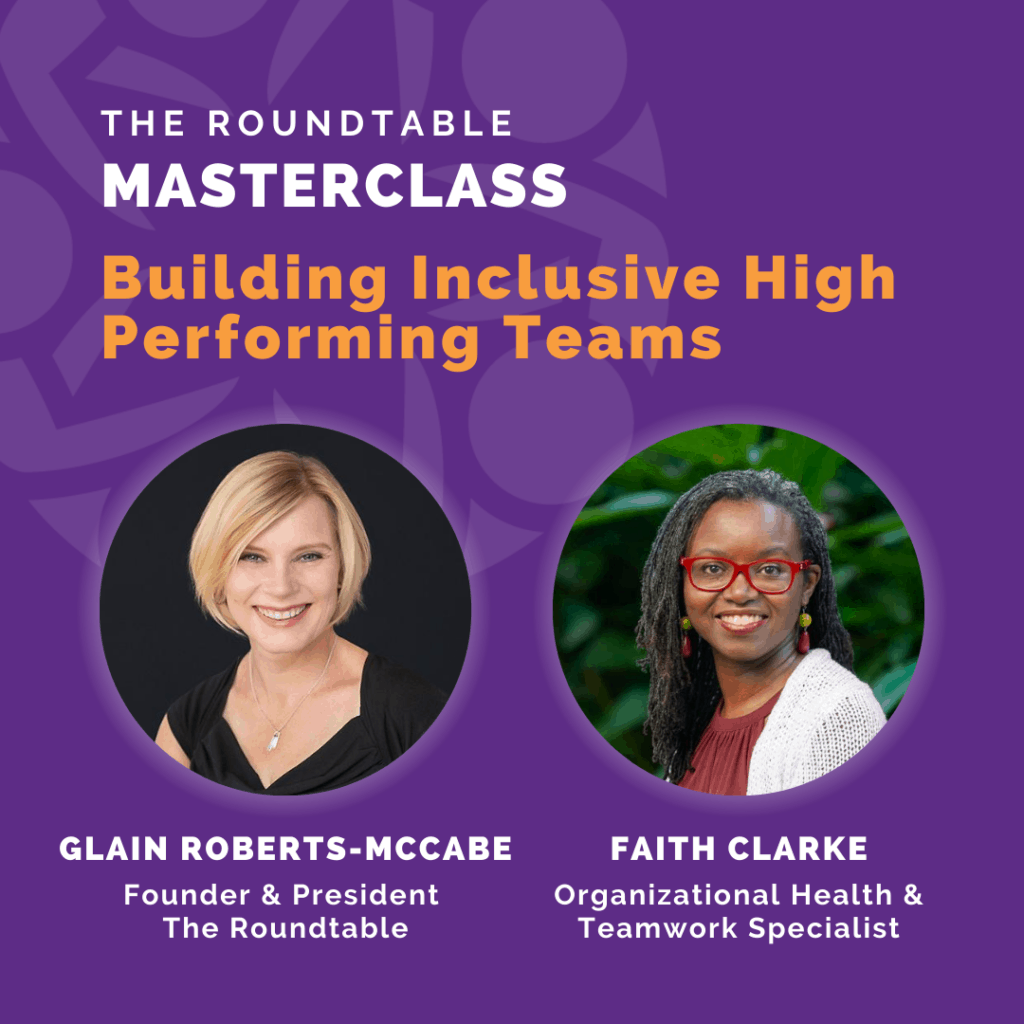I was thrilled to host a Masterclass session with Faith Clarke on Building Inclusive and High Performing Teams. I love my conversation with Faith and always learn so much from her holistic perspective. You can tune in below. Pressed for time? Simply scroll down for my three key takeaways from our conversation.
[youtube https://www.youtube.com/watch?v=SCE7moB8Egw&w=560&h=315]
1) Inclusion is Multi-Layered
Whether we are talking about racial inclusion, gender inclusion, ability inclusion or self-inclusion, what we need is the ability to put ourselves in the shoes of others and ask ‘what do I need when I stand in this place’? Building inclusive, high performing teams requires a raising of personal and collective emotional intelligence. Creating an inclusive environment starts with an ability to recognize and acknowledge other people’s experiences and create space to explore how and where those experiences connect and disconnect.
2) You’re Probably Going to Screw Up
High performing teams are able to get to a place where they can almost ‘read each other’s thoughts’. To get there requires high degrees of vulnerability within the team and, especially, from the team leader. You’re not always going to get it right. If someone is of a different race, gender, ability etc. than you, don’t be afraid to acknowledge your blind spots and proactive about openly asking for feedback and support when you mess up. Because you’re probably going to mess up. Creating a culture of open and honest feedback and communication is the foundation any team needs to achieve high performance.
3) Ditch the Industrial Age Mindset
The ‘hub and spoke’ approach to team leadership where leaders hold the mantle of decision making is antiquated and gets in the way of creating inclusive cultures and encouraging diversity of thought. Instead, when we see a team as a holistic group where the leader is part of the system, we create space to explore ideas, support each other and expand our capabilities both individually and collectively. Shifting from a hierarchical model to a more collective approach to problem solving within the team increases engagement and participation as ownership for the team is shared.
There was so much more covered so I hope you enjoy the replay.
Resources
Download Faith’s team assessment and pathway.
And, as a fun side note, if you’d like to mark your Covid-19 experience, take a look at Faith’s talented son who has a created a series of Covid inspired t-shirts.
Be sure to reach out if we can:
- Help your leaders build high performance teams
- Help you create an accountable/results-focused culture
- Help your leaders navigate change, disruption and growth
- Help you finesse your leadership approach and make a greater impact




